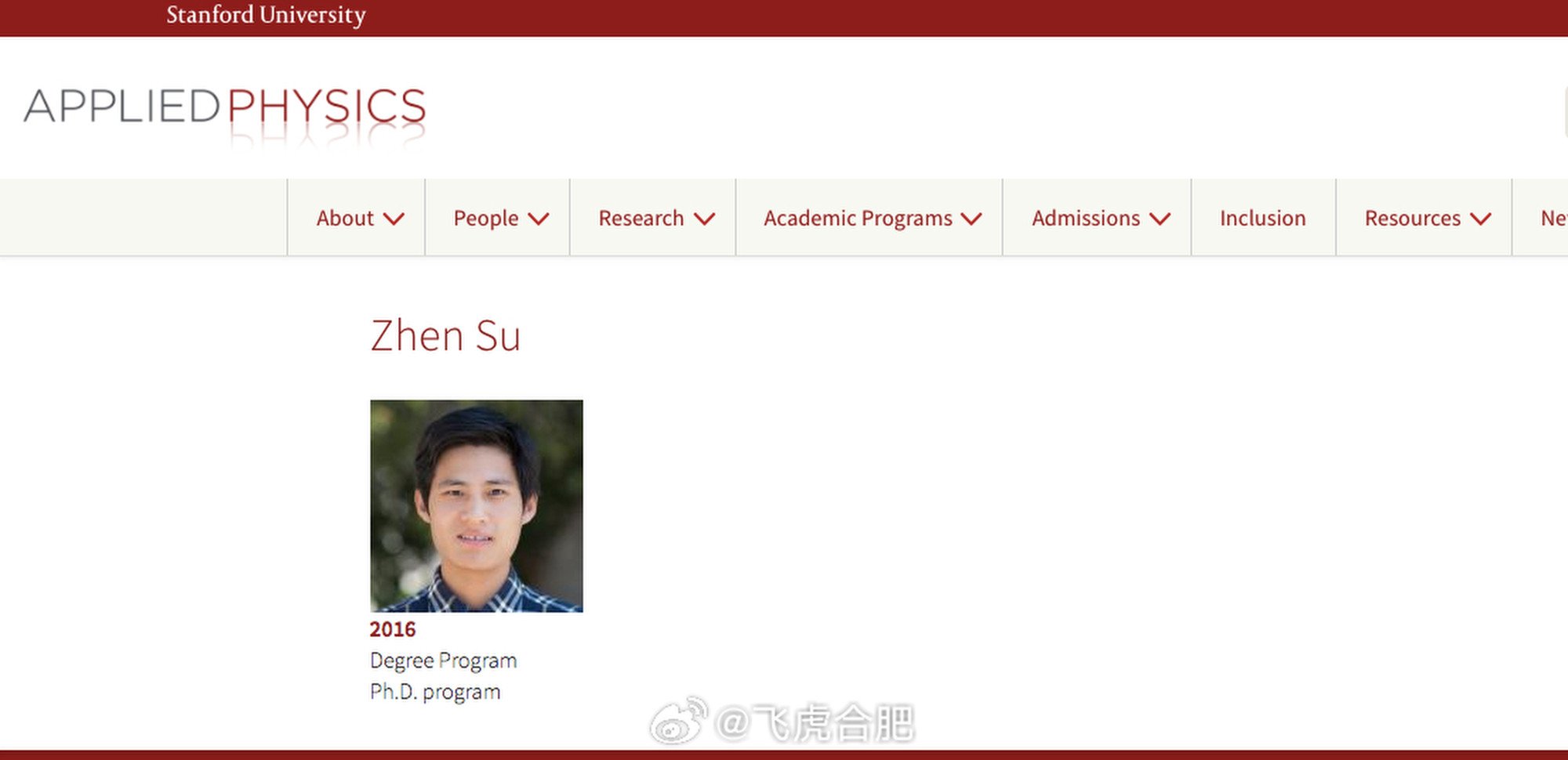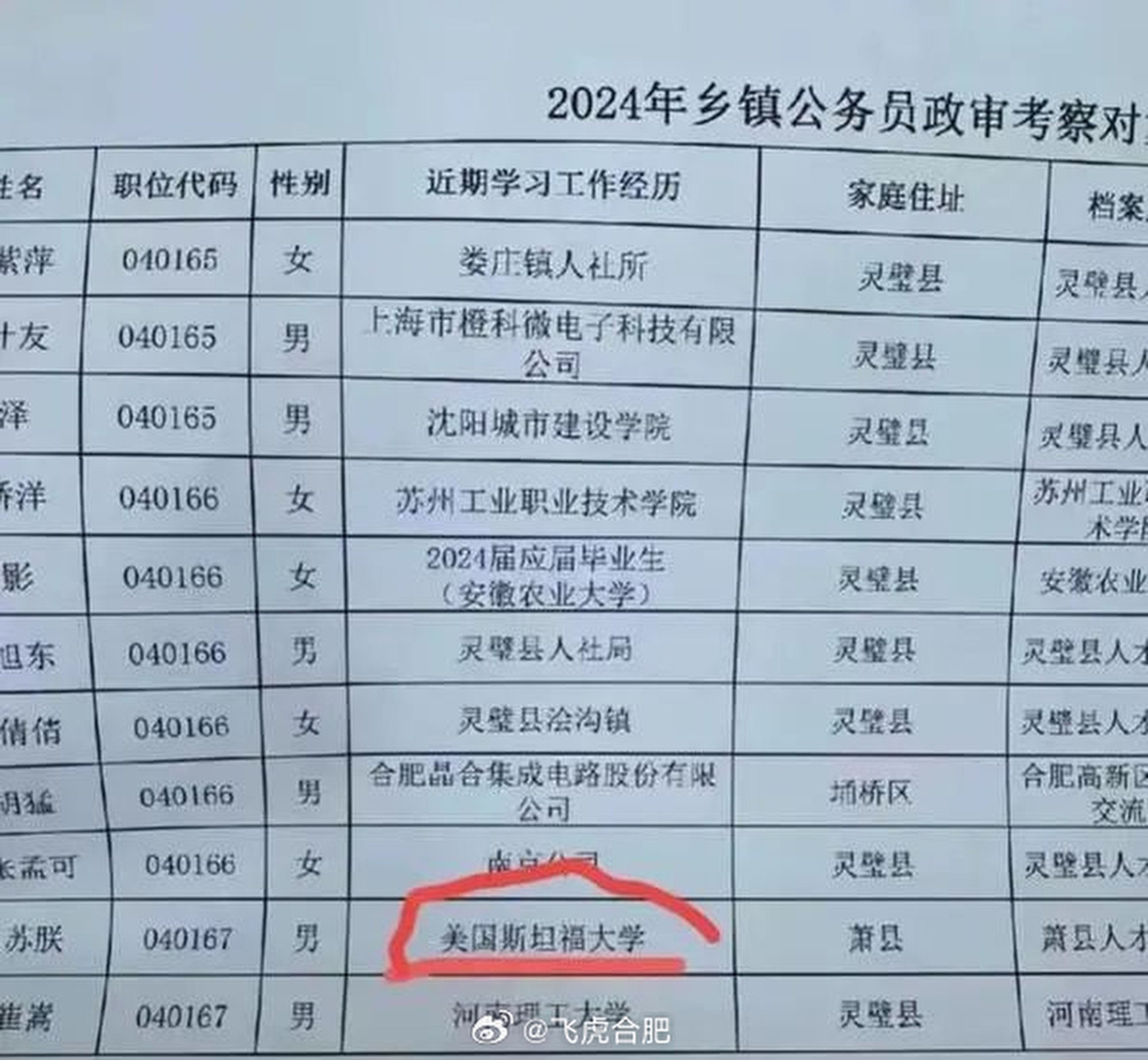
Stanford PhD physicist applies for rural clerk job in central Chinese town
- Su Zhen, with a doctorate from top US university, reportedly appears on civil servant candidate list in Anhui province, sparking speculation
In China, the civil service exam usually consists of a written test, interview and assessment – those listed on the screenshot still have to undergo their “political assessment” before the final decision is made and announced.
As the list has not yet been made public, the Post could not independently verify the original source of the screenshot. However the Post did confirm the authenticity of the case with two insiders, including one from Xiao county, a region of around 1 million people in northern Anhui province, where Su was born and graduated from a local high school.
One of Su’s high school classmates, who goes by the username Hyman, expressed his surprise on Monday on social media site Zhihu, a Quora-like online content platform.
He said when he heard the news from his high school alumni group, his first reaction was, “It’s impossible.”
He said he then turned to other classmates for confirmation, but was told that Su’s WeChat was no longer in use and others had lost contact with him a long time ago.
“I think his intelligence and diligence make him a better academic researcher than me, and there is no doubt that he has a bright future ahead of him,” he said.

Su was one of the school’s top academic performers. According to Hyman, Su was the best student in his class – and the top student in USTC’s physics department.
During his studies at USTC, Su was awarded the Guo Moruo Scholarship, the university’s most prestigious scholarship. According to the university, of the 34 recipients in 2016, 26 went to the world’s most famous universities and research institutes. Su chose to head to Stanford.
Which is why his career choice now is seen by many as inexplicable.

“If he doesn’t want to go into academia and hopes to become a civil servant, a city in China’s economically developed coastal area is also a better choice,” he said.
Others, however, believe Su may have made his decision for personal reasons and his choice should be respected.
In March, there was a similar case in the Yuhang District Education Bureau in the eastern province of Zhejiang when they welcomed a new civil servant who had graduated from Harvard University.
Despite such similar cases, Yuan Lanfeng, a researcher at USTC, believes Su’s case is an anomaly that does not represent the general situation for graduates of prestigious universities.
“It’s not necessary to take such a grass-roots job, even if it’s very hard to find work,” Yuan said, adding that with his CV, the most obvious route for Su is academia, followed by companies, and there must be a personal reason for not going to any of these.
The Post has attempted to contact Su to ask him about his life experiences and career considerations, but has not yet received a reply.
The Post also contacted Mike Dunne, Su’s primary thesis adviser and a professor of photon science at Stanford, for comment, but he also did not respond.

